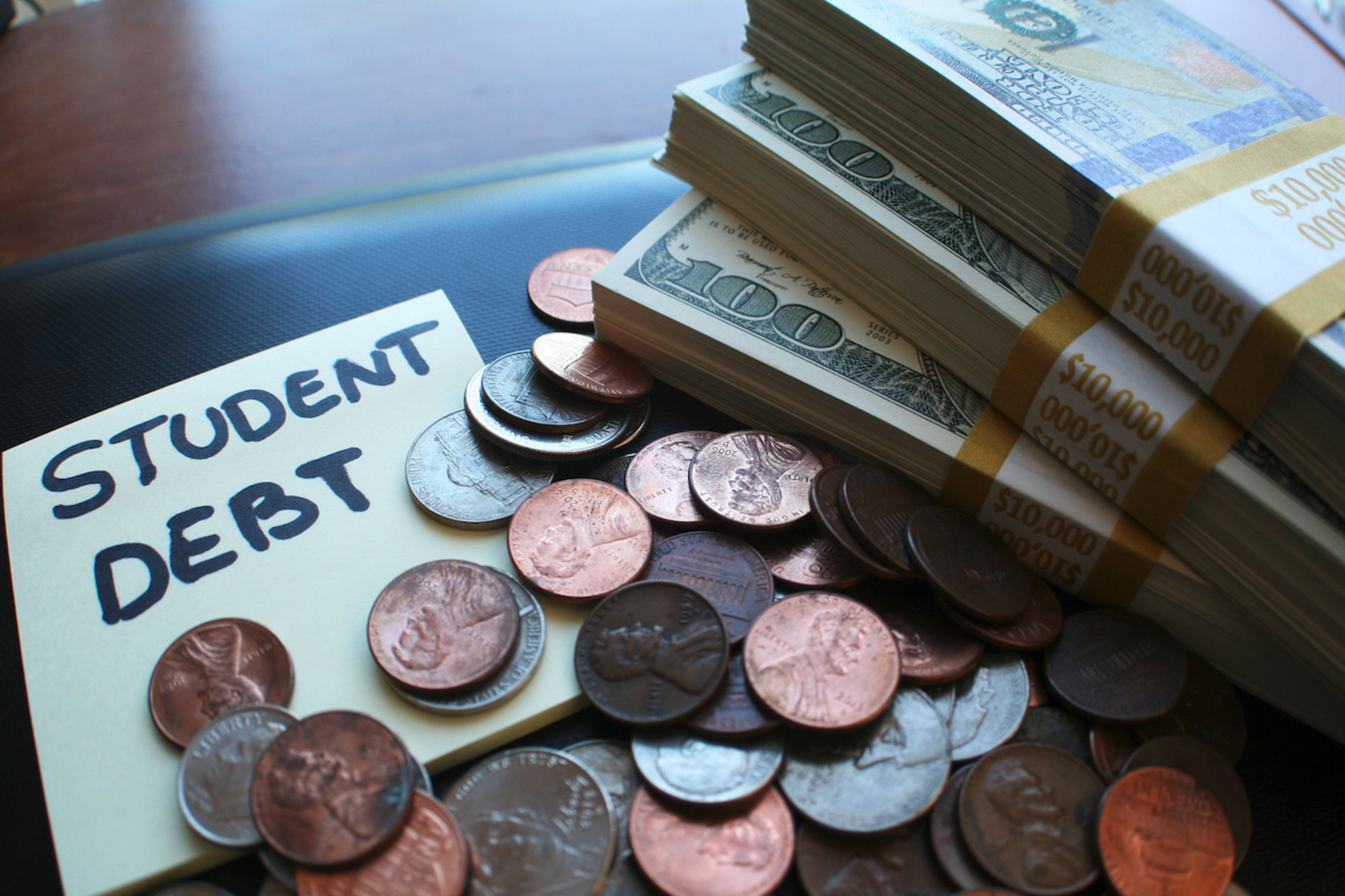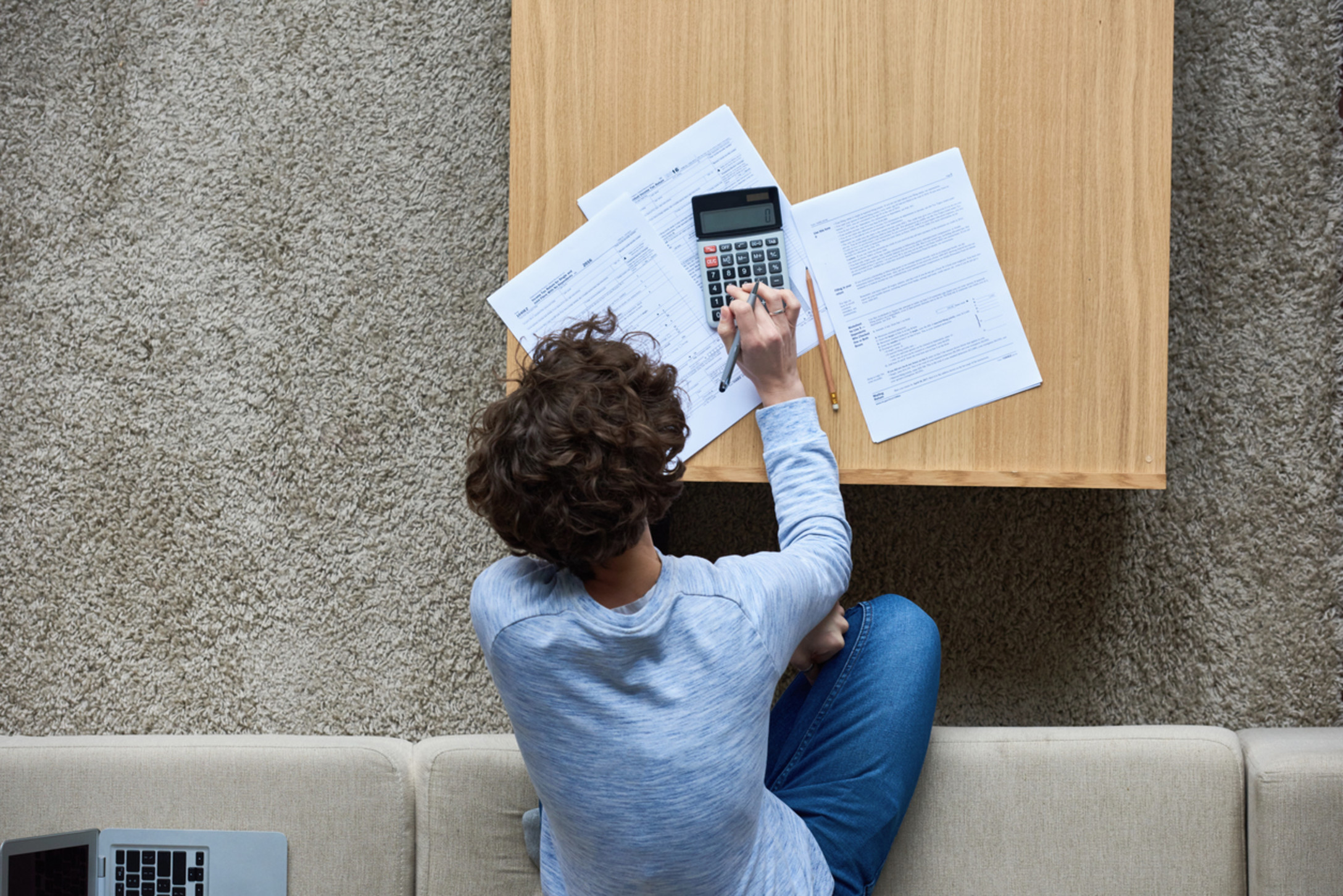The cost of college. The cost of gas. The cost of eggs, for crying out loud! Everything feels more expensive right now, so moms who are feeling anxious about money are in good company. According to recent research from the American Psychological Association, more than 65% of Americans are worried about money overall and 87% are worried about the rising costs of everyday goods. Although there are good signs in the overall economy too (such as the current low unemployment rates), it's pretty clear that now is the time to think carefully about how we are managing our money.
The good news about managing money and building healthy financial habits is that we don't have to be an economist or an accountant to do it! No matter where we are starting from, healthy financial habits are a matter of practice, education, and using online tools to make it as easy as possible. We're here to help with 15 suggestions, including some tried and true tips from financially savvy moms, for managing household finances with the goals of paying off debt, building wealth, and planning for the future. And, yes, we're all about the free or very low cost options to help build healthy financial habits, so there is nothing on this list that costs more than a few dollars at most. Take a deep breath and know that money doesn't have to be so stressful with some good habits to help.
Set It & Forget It

One of the essential building blocks to a healthy financial life is making sure to pay bills on time. This not only helps maintain or improve credit scores, but it also helps avoid pesky (and expensive!) late fees. Given that many families have 10 or more monthly bills to pay, it can be easy for something to slip through the cracks. Setting up autopay for some recurring bills, especially the ones that have a predictable cost, can help make sure nothing gets missed.
Consider a Credit Freeze

Good financial health includes having a strong credit score. One way to protect credit is to consider doing a credit freeze. Adults who aren’t planning to open any new credit accounts (cards, car loans, mortgages, etc.) in the near future can opt in to freeze their credit reports with the three credit reporting agencies. This is free, can be done online, and can prevent identity theft.
The Monthly Meeting

In many families, one person runs the show when it comes to household finances and that can work just fine. But scheduling a monthly money check-in is a smart move to make sure both partners know what’s happening with their money.
Sarah Smythe from Des Moines, Iowa, shares that she and her wife “go out for coffee once a month and just check in on spending and review our progress to building our travel fund. It’s a good excuse for a day date and it keeps us both accountable and motivated. Fiji, here we come!”
Get Higher Interest

Although interest rates going up isn’t great news for people trying to get a mortgage, it is good news for people wanting to build up their emergency savings. Savers should get in the habit of checking current interest rates on high-yield savings accounts at least once or twice a year. Even just a 1% difference in interest rates can result in hundreds of dollars in growth over a year.
Get Out of Debt With an App

Student loans, car notes, credit cards, and a mortgage — it can be all too easy for families to find themselves in debt. Creating a plan for paying off that debt and sticking to it is key to building a healthy financial future. Consider using an app suh as Debt Payoff Planner to help make a plan of attack and to track progress.
Start Planning for the Holidays Now

The average American family spends more than $1,400 per year on Christmas shopping (and a lot more than that if they travel over the holidays), which can make December a very expensive month. That’s why we are stealing a genius idea from Kirsten Johannson of Albert Lea, Minnesota.
She explains her smart money habit: “I figured out that every Christmas, I end up giving out over 20 gift cards to teachers, my nephews, and other folks. I started getting a gift card every time I go to Target (which is usually about twice a month). By the time Christmas comes, I have a stockpile! I keep them in our small fireproof safe so I don’t lose them over the course of the year.”
Round It Up

Getting out of student loan debt can be a long process, especially if people are only paying the minimum amount. One smart habit for paying off loans or credit cards is to always round up. If the monthly payment is $240, pay $300. Every little bit extra going to the principal helps!
Prep for Taxes All Year

Tax time can feel stressful, especially for people who aren’t totally sure they’ve kept all the records they need. One good habit to build is to set up at least two files for each tax year, as soon as the new year starts.
First, create an email folder for saving electronic documents such as receipts for donations, investment statements, and more. Second, keep an accordion file for receipts, property tax statements, and other forms. Another smart idea is to make a list of all the items and documents needed for 2022 taxes and use it as a checklist of items to collect during 2023.
Watch for Automatic Charges

Anna Yang of Oakland, California, made a shocking financial discovery recently and it is SO relatable!
“I was paying our credit card and really looked at all the charges and I was so surprised at how many recurring monthly charges we had! Between streaming services, Peloton subscription, subscriptions to various apps, and some other random ones I’d forgotten about, we had over $300 a month in subscription charges. Now we sit down once a quarter (January, April, July, and October) and go through the list and cancel things we aren’t actually using. So far I’ve trimmed the list by over $100 a month!”
Resale Habit

Kids grow fast and outgrow both clothes and toys faster than they can wear them out. One smart move is to keep a storage tub for collecting outgrown clothes or toys that aren’t getting played with and commit to selling them online once a month. Tuck any of the money earned into the kid’s college fund or maybe a family vacation fund.
Use Credit Cards Strategically

Credit cards can get a bad rap, especially when people get in over their heads with debt. They can also be a smart tool, however, for folks who are able to pay them off monthly, if they are used intentionally.
Nicki Boothe from Tucson, Arizona, explains how she and her husband have built a smart credit card habit: “We have three credit cards. One that earns points on Amazon, one that earns miles on Delta, and one that earns points at REI. Every year, we decide which one will be the one that we use. If we know we want to do a family trip that involves flying, we use the Delta points card for EVERYTHING. If we don’t have travel plans, we use the one with Amazon points.
“We pay off our balance every month, but by the end of the year we usually have enough points for a whole plane ticket or to make a real dent in our Christmas shopping list,” she added. “It’s great and it feels like free money, but only if you actually pay it off every month, so we always check in with each other on our spending.”
Don't Be So Attentive

A lot of these suggestions are habits we think people should start, but here’s one that maybe some of us need to stop: obsessively checking investment and retirement accounts! For long-term savings and investments, checking daily, weekly, or even monthly is probably overkill and can make us more stressed as the stock market fluctuates. Make a plan to check on those accounts once a quarter and then relax, knowing that time is the best thing for helping grow wealth in investment and retirement accounts.
Get Grocery Costs in Check
There’s no doubt that grocery shopping has gotten more expensive since the pandemic, especially for those of us who can be impulse shoppers (guilty!). One smart strategy is to switch to grocery delivery. Not only does it limit the temptation to throw unplanned treats in the cart, but also sitting down to make a list can help with meal prepping and cutting down on food waste.
Track It
Sometimes it can be easy for our spending levels to increase without us realizing it, which can lead to some uncomfortable “Where did all the money go?” conversations. Get a handle on it by tracking all spending for a few months and see what trends emerge and where some budget trimming might be in order.
Plan for Windfalls

Ultimately, money should be a tool to help provide stability and, yes, some fun for our families. One final good habit is to make a plan for what to do when there are financial windfalls, such as tax refunds, bonuses, raises at work, or gifts.
A smart strategy is to divide any windfall in half, with one part going toward paying off debt or building savings and the other half going for something that brings joy such travel or a fun experience as a family. Planning for the good is just as important as planning for the bad.




